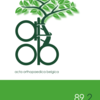Carpal tunnel decompression: a comparison of elderly and younger patients’ sleep quality
sleep quality, carpal tunnel decompression, and elderly patients
Published online: Aug 12 2023
Abstract
The current study was conducted to evaluate sleep disturbances by age group in patients who underwent carpal tunnel decompression (CTD). Individuals who applied to the orthopedic outpatient clinic and had CTD between 2018 and 2022 had their medical records reviewed. Pre-operative data included patient demographics and the Pittsburgh Sleep Quality Index (PSQI). All post-surgery patients who returned for suture removal were clinically evaluated. Patients were requested to return for re-scoring on the PSQI 6 months after CTD. The cases’ average age was 56.44±9.37 years. The study divided its subjects into two age ranges: those between the ages of 45 and 60 (82.2%) (Group1) and those between the ages of 70 and 85 (17.8%) (Group 2). The PSQI values of Group 1 were found to be significantly lower than Group 2. Preoperative PSQI levels were compared to post-op values at 2 weeks and 6 months, and both measurements decreased significantly. Sleep quality improved in all patient groups, regardless of their age, following CTD. Elderly patients had delayed improvements in sleep quality following CTD. The PSQI was effective in determining improvement following CTD, particularly in younger patients, and the progress remained for 6 months.
